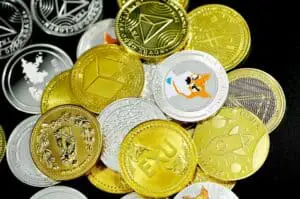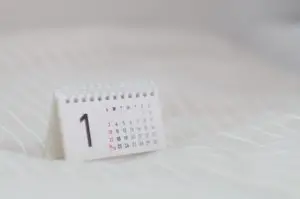If your interested in trading futures. It’s important to understand the concept of contract expiration. In this post I’d like to provide a concise resource explaining why futures contracts expire, when do futures contracts expire and what happens when a futures contract expires.
Each futures contract has it’s own nominated expiration date. The expiration month is listed in the contract ticker symbol code. Most futures contracts expire on the third Friday of this expiration month. However, there are exceptions to this general rule. Contract expiration dates of individual contracts should be confirmed on the contract specifications and calendar.
In the following post I will provide a detailed summary of when the most popular futures contracts expire. How to interpret ticker symbol codes. I’ll also provide links to a full list of futures contract specifications and contract expiration calendars.
IMPORTANT NOTE: This post is intended as a GENERAL GUIDE ONLY. All dates and times should be confirmed with the relevant exchanges.
E-Mini S&P 500 futures contract calendar (updated 2023)
Below is a summary guide of the latest E-mini S&P 500 futures contract expiration calendar.
| 2023 | 2024 | 2025 |
|---|---|---|
| March 17 | March 15 | March 21 |
| June 16 | June 21 | June 20 |
| September 15 | September 20 | September 19 |
| December 15 | December 20 | December 19 |
For the most up to date E-mini S&P 500 futures contract calendar visit CME Group contract calendar.
What are futures contracts and why futures expiration dates are important?
Futures contracts are a financial derivative that is an agreement to buy or sell the underlying commodity or security for an agreed price at a nominated time in the future.
The buyer of a futures contract agrees to take delivery of the commodity or security at the expiration date. The seller agrees to provide and deliver the commodity or security at the expiration date.
At anytime before the expiration date. Futures contracts can be bought and sold on a futures exchange, without taking delivery or delivering the underlying asset.
Futures contracts are used as a hedging instrument for buyers and sellers of the underlying commodity or security to provide provide price certainty at some date into the future.
Why do futures contracts expire?
The original purpose of the futures market was to provide buyers and sellers of commodities and securities price certainty at some date into the future.
Futures contracts expiration is the date that delivery of the underlying asset is made. The expiration date is when the cash for physical goods transaction is made.
Expiration dates allows buyers to take delivery of ( and seller to deliver) an asset.
What is futures contract rollover date?
Often traders of futures contracts prefer to either defer delivery of the underlying asset or may want to avoid the obligation of contract settlement altogether.
Futures contract rollover is when traders switch from the front month (or the expiring contract) to another contract with an expiration date at some time into the future.
Futures contracts can be rolled at any date a market participate prefers.
However, trading convention is to roll the expiring contract 8 days before the contract is due to expire. This is often referred to as the ‘roll date’.
Typically traders will determine when to roll a futures contract by watching the volume of expiring contract and the forward contract. When the volume of the forward contract reaches a certain level they may choose to switch contracts.
Understanding Futures Contract Codes
Futures contract codes are used to identify the underlying asset and the expiration date..
The following is a key to understanding the various contract codes:
Asset identification codes are the first one – three letters of the ticker symbol. For example for the ticker symbol ESH21. ‘ES’ represents the S&P500 security asset.
The last three characters identifying the month and year of expiration. For example for the ticker symbol ESH21. The ‘H’ represents the month of March and ’21’ the year.
Important Note: Contract codes are sometimes identified differently depending on the electronic trading platform.
For a full list of Asset Contract Code click here
Calendar months expiration dates are identified by the following symbols:
- January – F
- February – G
- March – H
- April – J
- May – K
- June – M
- July – N
- August – Q
- September – U
- October – V
- November – X
- December – Z
When Do Futures Contracts Expire?
Whilst most futures contracts share common expiration dates. Not all contracts expire at the same time.
It’s therefore really important if you’re planning to trade any futures contract instrument, that you clearly understand when it’s due to expire.
Below I have listed a handful of the most common futures contracts. I’ve listed their individual expiration date, day and time (EST). I’ve also include a ink to the contract specification. Please be sure to check and confirm any dates and times with the exchange where your chosen contract is listed.
When does the E-Mini S&P 500 futures contract expire? (ES)
The E-Mini S&P 500 futures expire on the third Friday of the contract month. Contracts expire quarterly in March, June, September, and December at 9:30 a.m. EST. Expiration dates for 2020 are March 20, June 19, September 18, and December 18. Rollover dates are March 12, June 11, September 10, and December 10. Click the link for the CME Group E-mini S&P 500 Futures contract specifications.
When does the Micro E-Mini S&P 500 futures contract expire? (MES)
The Micro E-Mini S&P 500 futures, the smaller version of the E-Mini S&P 500 expiration dates are the same as the ES. Micro E-Mini S&P 500 futures expire on the third Friday of the contract month. Contracts expire quarterly in March, June, September, and December at 9:30 a.m. EST. Click the link for the CME Group Micro E-mini S&P 500 Futures contract specifications.
How long are oil futures contracts? (CL)
NYMEX WTI Crude Oil futures contract duration, expiration dates and symbol interpretation differs from most futures contracts. It’s very important to take the time to understand the CL contract duration.
NYMEX WTI Crude Oil futures contract contracts expire monthly, 3 business days prior to 25th calendar day of the month prior to the contract month. If the 25th is not a business day. The contract will expire 4 business days prior to the 25th calendar day of the month prior to the contract month.
How long are oil futures contracts? Crude oil contracts are listed for the current year and an additional 10 years, plus two additional contract months following the termination of trading in the December contract of the current year.
Click the link for the CME Group NYMEX WTI Crude Oil futures contract specifications.
When does the E-mini NASDAQ futures contract expire?
The E-mini Nasdaq futures contracts expire quarterly on the third Friday of the month in March, June, September, and December at 9:30 a.m. EST. Click the link for the CME Group E-mini NASDAQ futures contracts contract specifications.
When does the Gold futures contract expires?
Gold futures expire monthly on the third to last business day of the contract month at 12.30 p.m CST. Click the link for the CME Group Gold futures contracts contract specifications.
Listed contract months for Gold are a little more confusing. Gold futures contract months are set by the following rules: (1) the nearest 3 consecutive calendar months (2) February, April, August and October in the nearest 23 months (3) June and December in the nearest 72 months.
See the Gold futures contract calendar linked below if this doesn’t quite make sense.
Futures contract calendars
What Happens When a Futures Contract Expires?
Before expiration of any futures contact traders have 3 options:
- Contract goes to Settlement: If the contract is left to expire the cash for physical goods transaction is made.
- Contract Rollover: Traders switch from the front month (or the expiring contract) to another contract with an expiration date at some time into the future.
- Offset/liquidation: A trader can choose to offset/liquidate a position and realize any profits or losses without taking physical delivery.
If a trader doesn’t offset or rollover their position before the expiration date the contract will expire and position will go to settlement.
A trader holding a long position is obligated to take delivery of the underlying asset. The trader in a short position is obligated to deliver the asset.




